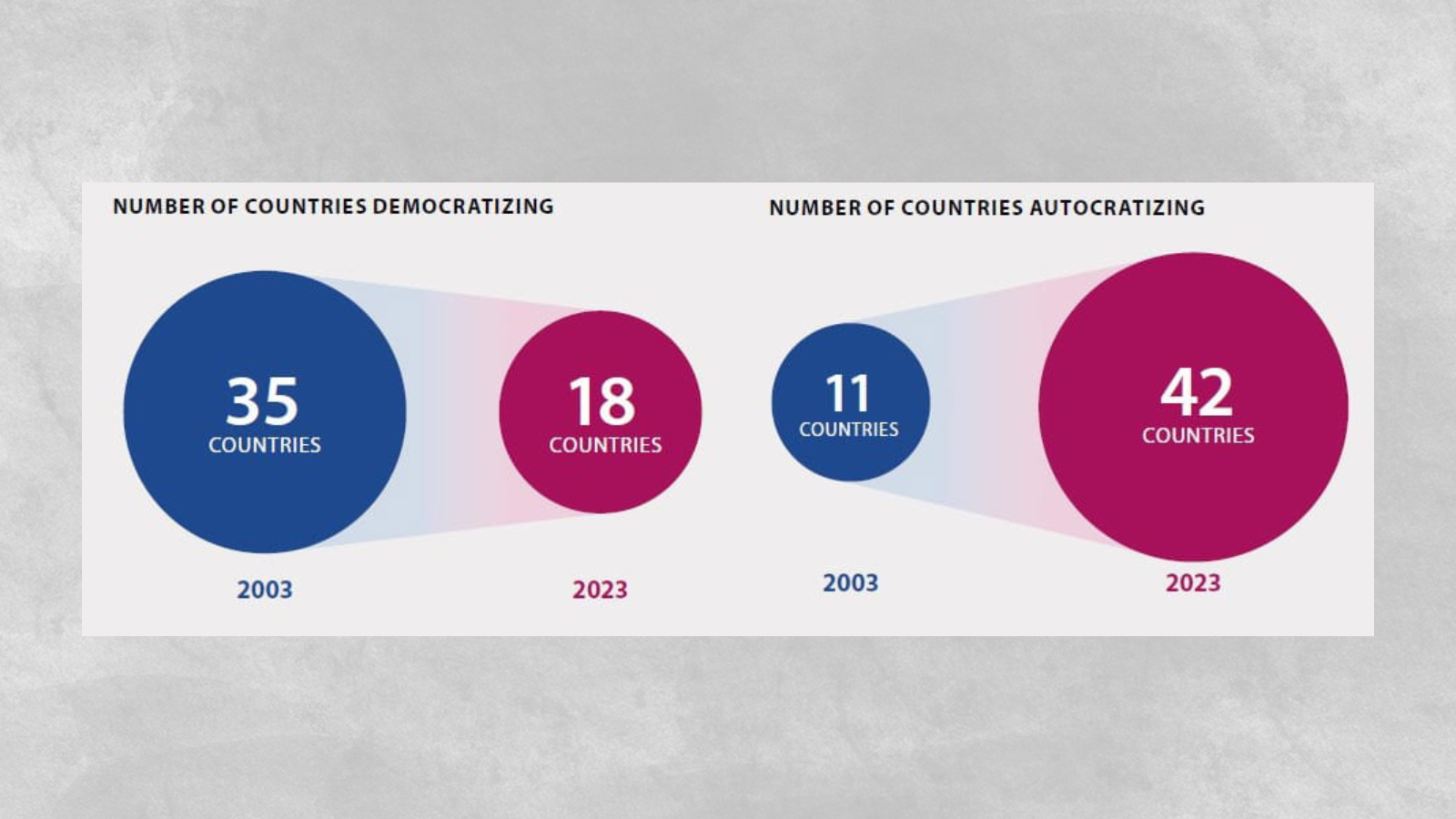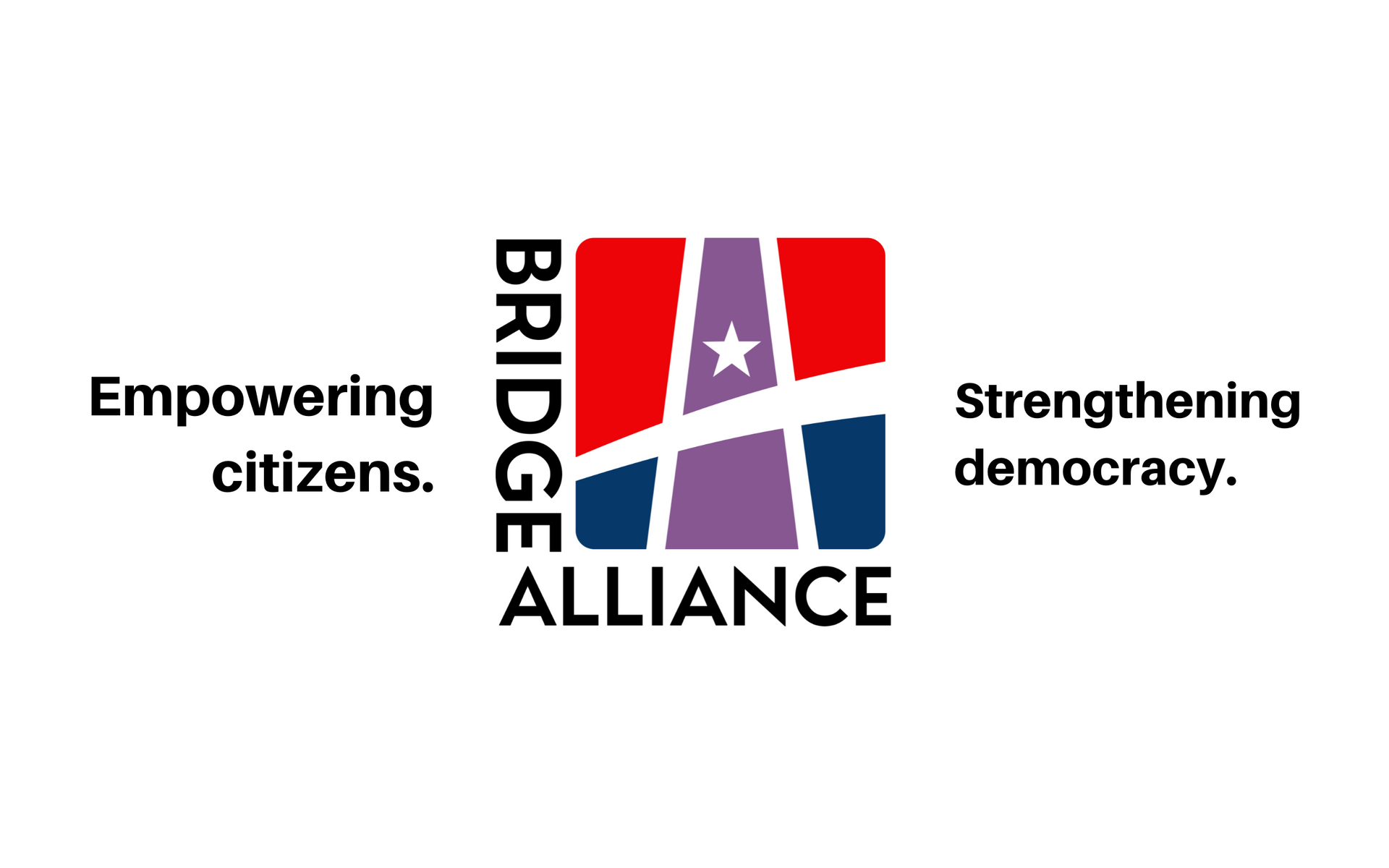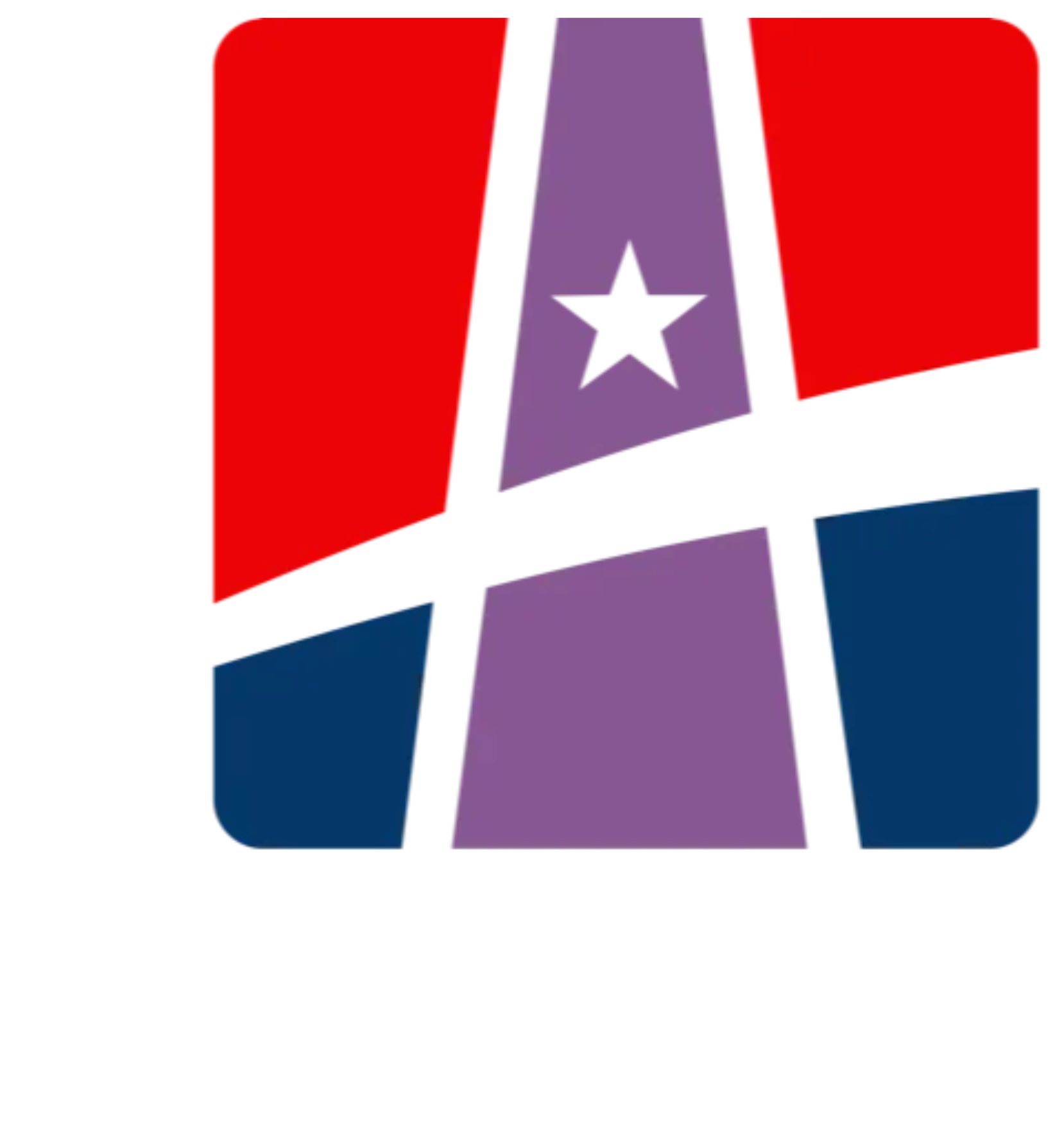Democracy Insights in Focus
Polarization, Participation, and Pathways Forward

There is an ever-growing repository of research on the behaviors and beliefs of Americans related to bridge-building, polarization, and our institutions. The proliferation of interest in these critical areas is wonderful, but can also feel overwhelming to keep track of and understand. In the past month, scholars, practitioners, and polls have published some particularly timely and notable articles and pollsters relevant to the healthy democracy movement. Analyzing some of them to share this week, I noted that they seemed to fall into three main themes, but with a wide breadth of issues tackled. I hope these summaries are insightful and useful to you!
Engagement and Participation in Democratic Processes
- What motivates bridge building across pernicious group divides?: The article by Peter T. Coleman and Lan H. Phan explores the dynamics of engaging Americans across political and racial divides in bridge-building activities, emphasizing the role of motivational framing. Through six studies, it examines how framing these activities in terms of prevention (avoiding negative outcomes) or promotion (achieving positive outcomes) can influence participation. Results indicate that fitting the framing to individuals' motivational orientation increases willingness to engage in bridge-building. The studies also uncover differences in motivation based on political affiliation, race, and gender, offering insights to assist bridging practitioners.
- Understanding Pro-Democracy Conservatives (Article on the report): The report by the SNF Agora Institute at Johns Hopkins University explores the contours of a conservative pro-democracy movement in the current American political landscape. It focuses on the importance of engaging conservatives in democracy reform efforts, traditionally dominated by the left, highlighting the political and personal costs for right-of-center individuals in these activities. Categorizing Americans into three groups based on their views of the 2020 election's legitimacy, the report examines these groups' characteristics, news consumption habits, beliefs about misinformation, and political identity.
- Growing Racial Disparities in Voter Turnout, 2008–2022: The Brennan Center's report reveals a widening gap in voter participation between Black and white Americans, particularly in regions formerly under Section 5 of the Voting Rights Act. This trend has been increasing since 2012, with the gap expanding more rapidly in areas affected by the Supreme Court's 2013 Shelby County v. Holder decision. The report underscores the impact of restrictive voting laws and practices on the turnout of voters of color, emphasizing a growing concern for democracy and participation equality across the United States.
Challenges to Democratic Health and Functioning
- Map the System - Political Polarization Report: In partnership with the Institute for Youth in Policy, the 2024 Map the System report by Vanderbilt University's Innovation Center delves into the escalating issue of political polarization in the United States. Employing a design-thinking methodology, the study gathers insights through scholarly research and interviews with 15 stakeholders to explore the roots of political polarization and propose potential levers for change, including electoral reform, media literacy, and enhanced civic education.
- Most say democracy is essential for the U.S. identity, but few think it is functioning well: The AP-NORC poll highlights a significant gap between the value Americans place on democracy and their perception of its functioning within the U.S. While three-quarters believe a democratically elected government is crucial to the country's identity, only 21% see democracy as the best form of government, and 53% think it's working poorly.
- Violence and Democracy Impact Tracker: March 2024 Update: The most recent update from this joint initiative from Protect Democracy and SNF Agora Institute at Johns Hopkins University evaluates political violence's effect on U.S. democracy, categorizing impact levels from well-functioning democracy to non-democratic systems - the U.S. evaluation levels remained constant with previous reports. Expert reports highlight significant concerns about threats to public officials, institutional breakdowns, authoritarianism, and electoral process violence.
Public Support for Democratic Values Amid Challenges
- Uncommon and nonpartisan: Antidemocratic attitudes in the American public (Penn Today on the article): This research is from the cross-institution team of Derek E. Holliday, Shanto Iyengar, Yphtach Lelkes, and Sean J. Westwood. They find that despite the recent undermining of democratic norms by prominent Republican officials, the American public largely opposes such violations, showing bipartisan support for democracy. It suggests the main threat to American democracy stems from elite actions, not widespread public support for antidemocratic behaviors. The findings highlight a disconnect between the behaviors of Republican elites and the democratic values of their constituents.
- Democracy Winning and Losing at the Ballot: The 2024 V-Dem Democracy Report reveals ongoing autocratization in 42 countries, impacting 35% of the global population, with democracy declining to levels last observed in 1985. Conversely, democratization is noted in 18 countries, representing 5% of the population.
- 1 in 5 Americans think violence may solve U.S. divisions: The PBS NewsHour/NPR/Marist poll reveals 1 in 5 U.S. adults believe violence may be needed to correct the country's course. However, it also reveals quite a bit of common ground on policy and social issues among Americans across party identification.
- Roughly 3 in 10 say neither Biden, Trump would be good president: Gallup poll shows that American voters face a choice between two candidates they hold in low regard -- they give Biden and Trump weak personal favorability ratings, do not think a series of positive qualities applies to either man, and three in 10 U.S. adults say neither would make a good president.
These themes collectively portray the nuanced state of democracy in the U.S. While we face significant challenges, including polarization, threats to democratic norms, and disparities in participation, there is also a strong undercurrent of support for democratic values and engagement in democratic processes. These insights give us hope in a pathway forward that involves inclusive, bipartisan efforts to address the challenges and leverage opportunities to strengthen democratic governance.
Featured Content
- AllSides (Announcement) April 3rd: Introducing AllSides Local: Balanced News for Your State
- American Values Coalition (Blog) March 28th: Trump Is Right, 'Christians Are Under Siege'
- Ballotpedia (Resource) April 3rd: State legislatures consider bills changing selection methods for certain offices
- Common Ground Committee (Blog) April 2nd: Common Ground: A Path to Productivity
- Everyday Democracy (Report) April 3rd: 2023 Annual Report
- Horizons Project (Article) March 29th: THE VISTA: March 2024
- Issue One (Press Release) April 2nd: Issue One’s ReFormers Caucus co-chairs respond to the disbandment of the U.S. House Office of Diversity and Inclusion
- National Civic League (Article) March 29th: Activating Citizenship and Democratic Renewal through Deliberation: The Launch of FIDE - North America
- National Coalition for Dialogue & Deliberation (Blog) April 2nd: Join New NCDD Working Groups in April: Fundraising and Philanthropy & Emerging Leaders!
- Veterans for All Voters (Newsletter) March 29th: March 2024 Newsletter
Podcasts
- Bridge Alliance (Collage) March 28th: Shifting Ground: Influence of race and faith on social engagement
- Common Ground Committee (Let’s Find Common Ground) March 28th: 2024 Election Politics: How Divided Are We Really? Kate Carney and John Geer
- Greater Good Science Center (The Science of Happiness) March 28th: How to Talk With People You Disagree With
- The Democracy Group (The Politics Guys) April 3rd: Parliamentary America: The Least Radical Means of Radically Repairing Our Broken Democracy
Citizen Connect Featured Events
- State Business Executives (April 9th @ 1:00 pm EDT) Youth Apprenticeship Kickoff
- Essential Partners (April 10th @ 3:00 pm EDT) An Essential Partners Dialogue Experience
- Interfaith America (April 11th @ 2:00 pm CDT) Faith in Elections Playbook: Inspiring Trust Zoom
- Network for Responsible Public Policy (April 11th @ 7:30 pm EDT) Returning to Philadelphia: Amending the Constitution for the Twenty-First Century
Featured Fulcrum Articles
- Jonah Goldberg, March 28th: Why Trump's running mate is less likely to be Marco Rubio than Marjorie Taylor Greene
- Kevin Frazier, March 29th: Democracy and information ecosystem are inextricably linked
- Dave Anderson, March 29th: Two aspects of our nation's original self-contradiction
- Seth David Radwell, April 2nd: The misguided woke mind
- Scott Klug, March 26th: The rise of the independent voter




